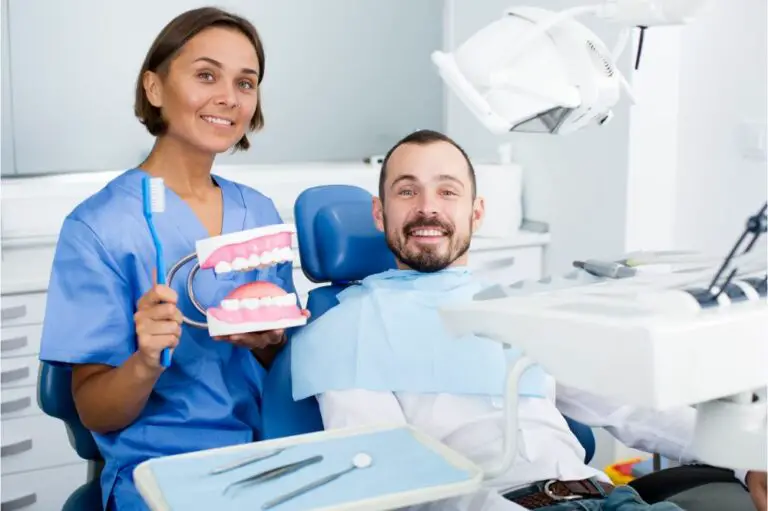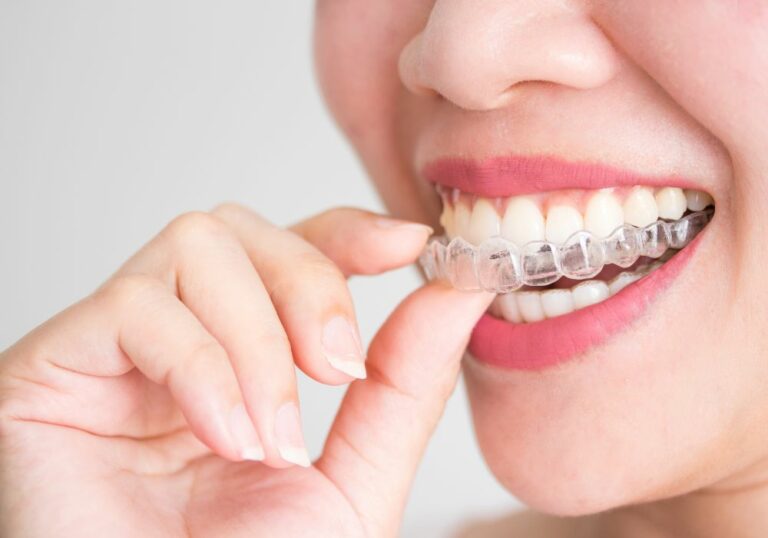Have you ever experienced a dental emergency and wondered whether you should go to the emergency room (ER) or the dentist? While dental emergencies can be painful and scary, it’s important to know what options are available to you. In this article, we will explore what the ER can do for your tooth and when it’s appropriate to seek emergency care.
In some cases, the ER may be able to provide temporary relief for dental emergencies such as severe toothaches, broken teeth, or injuries to the mouth and jaw. However, it’s important to keep in mind that emergency rooms are not equipped to handle all dental emergencies. In fact, many ERs do not have dentists on staff and may not have the necessary equipment to provide long-term solutions.
So, when should you go to the ER for a dental emergency? And when should you go to the dentist instead? Let’s take a closer look at some common dental emergencies and what you should do in each situation.
Understanding Tooth Pain

Tooth pain can range from mild discomfort to excruciating pain that can make it difficult to eat, drink, or even talk. Tooth pain can be caused by a variety of factors, including cavities, gum disease, trauma, or infection. Understanding the cause of your tooth pain is crucial in determining the best course of treatment.
Here are a few things to keep in mind when experiencing tooth pain:
- Location of pain: The location of your tooth pain can help identify the possible cause. Pain in the front teeth may indicate a cavity or gum disease, while pain in the back teeth may suggest an abscess or impacted wisdom tooth.
- Type of pain: The type of pain you are experiencing can also provide clues as to the cause. Sharp, shooting pain may indicate a nerve issue, while a dull, throbbing ache may suggest an infection.
- Sensitivity to temperature: If your tooth is sensitive to hot or cold temperatures, it may be a sign of a cavity or nerve issue.
- Swelling or fever: Swelling in the gums or face, along with a fever, may indicate an infection that requires immediate attention.
If you are experiencing tooth pain, it is important to see a dentist or medical professional as soon as possible to determine the cause and appropriate treatment. Delaying treatment can lead to further complications and potentially more serious health issues.
Common Dental Emergencies
If you are experiencing a dental emergency, it is important to seek prompt treatment to prevent further damage or infection. Here are some common dental emergencies and what you can do until you can see a dentist.
Toothache
A toothache can be a sign of an underlying dental issue, such as a cavity or infection. To manage a toothache until you can see a dentist, try rinsing your mouth with warm saltwater and taking over-the-counter pain medication. Avoid placing aspirin directly on the affected tooth or gums, as this can cause burning and irritation.
Broken or Chipped Tooth
If you have a broken or chipped tooth, rinse your mouth with warm water and apply a cold compress to the affected area to reduce swelling. If you are experiencing pain, take over-the-counter pain medication. Avoid eating hard or crunchy foods until you can see a dentist.
Knocked-Out Tooth
If your tooth has been knocked out, gently rinse it with water and try to place it back in the socket. If this is not possible, place the tooth in a container of milk or your own saliva and seek dental treatment immediately. Time is of the essence when it comes to a knocked-out tooth, so it is important to seek prompt treatment.
Lost Filling or Crown
If you have lost a filling or crown, try to keep the affected tooth clean and avoid eating hard or sticky foods. You can purchase temporary filling material from a drugstore to cover the affected area until you can see a dentist. Avoid using superglue or other adhesives to reattach the crown, as this can cause further damage to the tooth.
Remember, if you are experiencing a dental emergency, seek prompt treatment from a dentist or emergency room to prevent further damage or infection.
What to Expect in the ER

If you’re experiencing a toothache and can’t get to a dentist, you may be wondering what to expect when you go to the emergency room. Here’s a brief overview of what you can expect during your visit.
Initial Assessment
When you arrive at the ER, you’ll be checked in and asked to describe your symptoms. The triage nurse will assess your condition and determine the severity of your toothache. They may ask about your medical history, any medications you’re taking, and whether you’ve had any recent dental work.
Pain Management
Once you’ve been assessed, the ER staff will work to manage your pain. Depending on the severity of your toothache, they may recommend over-the-counter pain relievers or prescribe stronger medication. They may also apply ice or heat to the affected area to help reduce swelling and inflammation.
Treatment Options
While the emergency room can provide temporary relief for your toothache, they may not be able to provide long-term treatment. In most cases, they will refer you to a dentist for follow-up care. However, in some cases, the ER staff may be able to provide treatment such as draining an abscess or removing a damaged tooth.
It’s important to remember that the emergency room should be used for emergencies only. If you’re experiencing a dental emergency, such as a severe toothache or a knocked-out tooth, and can’t get to a dentist, the ER can provide temporary relief until you can see a dentist. However, for routine dental care, it’s best to see a dentist.
Limitations of ER for Dental Issues
If you are experiencing a dental emergency, visiting the emergency room (ER) may seem like a logical choice. However, it is important to understand the limitations of the ER when it comes to dental issues. Here are some reasons why the ER may not be the best option for your dental emergency:
Lack of Specialized Equipment
While the ER is equipped to handle a wide range of medical emergencies, it is not typically equipped with specialized dental equipment. For example, if you have a tooth that has been knocked out, a dentist may be able to re-implant the tooth if it is done quickly enough. However, the ER may not have the necessary equipment or expertise to perform this procedure, which could result in the loss of the tooth.
Temporary Solutions
Another limitation of the ER for dental issues is that the solutions provided are often temporary. For example, if you have a severe toothache, the ER may provide pain medication to help manage your symptoms. However, this will not address the underlying cause of the toothache, which may require more extensive dental treatment.
In addition, if you have a dental infection, the ER may provide antibiotics to help manage the infection. While this can help alleviate your symptoms in the short term, it is important to follow up with a dentist to address the root cause of the infection and prevent it from recurring.
Overall, while the ER can provide some relief for dental emergencies, it is important to understand its limitations. If you are experiencing a dental emergency, it is best to contact a dentist or dental clinic as soon as possible to receive the specialized care you need.
When to Visit a Dentist Instead

If you are experiencing a dental emergency, it is important to seek immediate treatment. However, not all dental problems require a visit to the emergency room. In fact, many dental issues can be addressed by a dentist during a routine checkup. Here are some examples of when you should visit a dentist instead of the ER:
Routine Checkups
Regular dental checkups and cleanings are an essential part of maintaining good oral health. During these appointments, your dentist can identify and address any potential issues before they become more serious. Additionally, routine checkups can help prevent future dental emergencies by allowing your dentist to monitor your oral health and provide preventative care.
Non-Urgent Dental Problems
If you are experiencing a non-urgent dental problem, such as a cavity or a chipped tooth, it is best to schedule an appointment with your dentist rather than going to the ER. While these issues can be uncomfortable, they are typically not life-threatening and can be treated during a regular dental appointment.
In summary, while dental emergencies require immediate attention, not all dental problems require a trip to the emergency room. For routine checkups and non-urgent dental issues, it is best to schedule an appointment with your dentist. This will not only save you time and money, but it will also ensure that you receive the best possible care for your oral health.
Frequently Asked Questions
When should I go to the emergency room for a dental issue?
If you are experiencing severe pain, uncontrolled bleeding, or have suffered a facial injury that has affected your teeth, you should go to the emergency room. It is always better to err on the side of caution and seek medical attention if you are unsure whether your dental issue is an emergency.
Can the emergency room provide pain relief for a toothache?
Yes, the emergency room can provide pain relief for a toothache. However, it is important to understand that the emergency room is not the best place to receive long-term dental care. Emergency room doctors may provide temporary pain relief, but you will need to see a dentist for a more permanent solution.
What dental emergency services can I receive at the hospital?
Emergency rooms can provide a range of dental emergency services, including treatment for broken teeth, knocked-out teeth, and severe toothaches. However, it is important to note that emergency rooms are not equipped to provide long-term dental care. You will need to follow up with a dentist for ongoing treatment.
What are the signs of a dangerous tooth abscess?
Signs of a dangerous tooth abscess include severe pain, swelling in the face or neck, fever, and difficulty swallowing or breathing. If you are experiencing any of these symptoms, you should seek medical attention immediately.
Are there emergency tooth pain relief options available at the hospital?
Yes, emergency rooms can provide temporary tooth pain relief options, such as pain medication and antibiotics. However, it is important to follow up with a dentist for long-term treatment.
Can urgent care clinics treat dental issues or should I go to the ER?
Urgent care clinics can treat some dental issues, such as minor toothaches and mouth sores. However, if you are experiencing severe pain, uncontrolled bleeding, or have suffered a facial injury that has affected your teeth, you should go to the emergency room.







